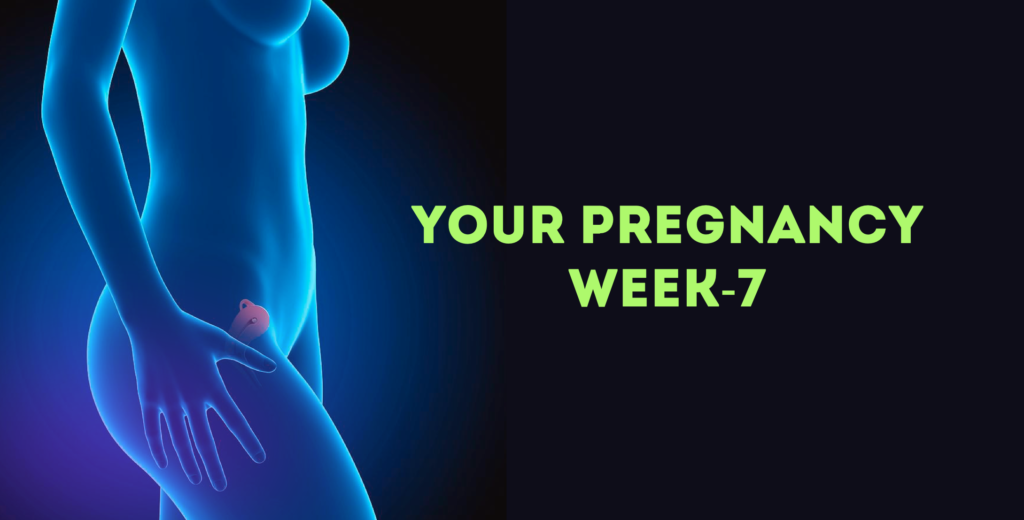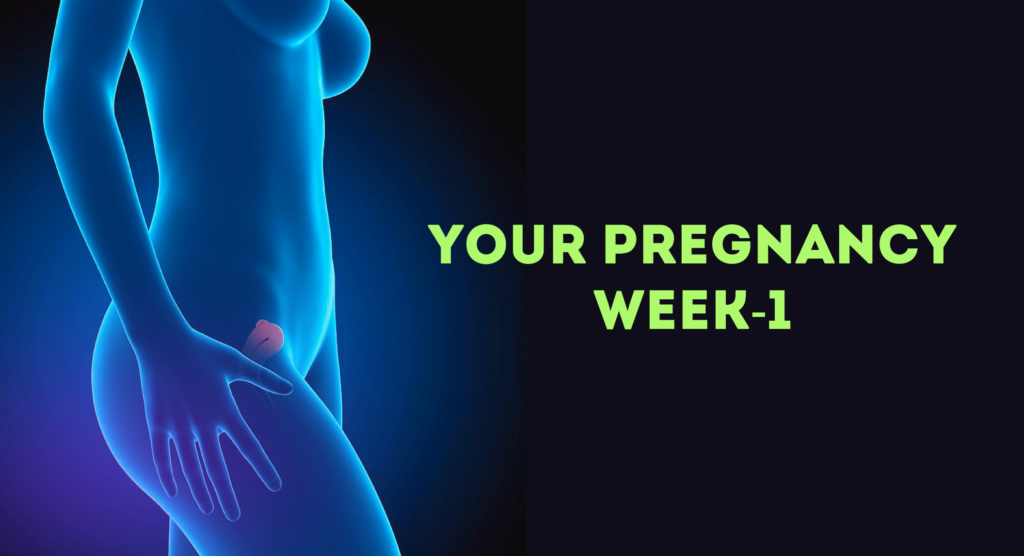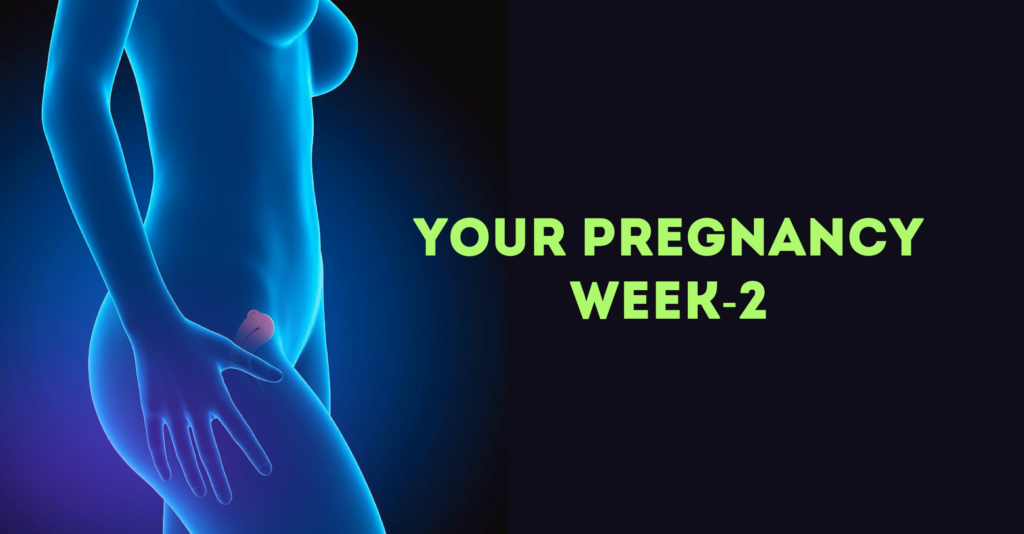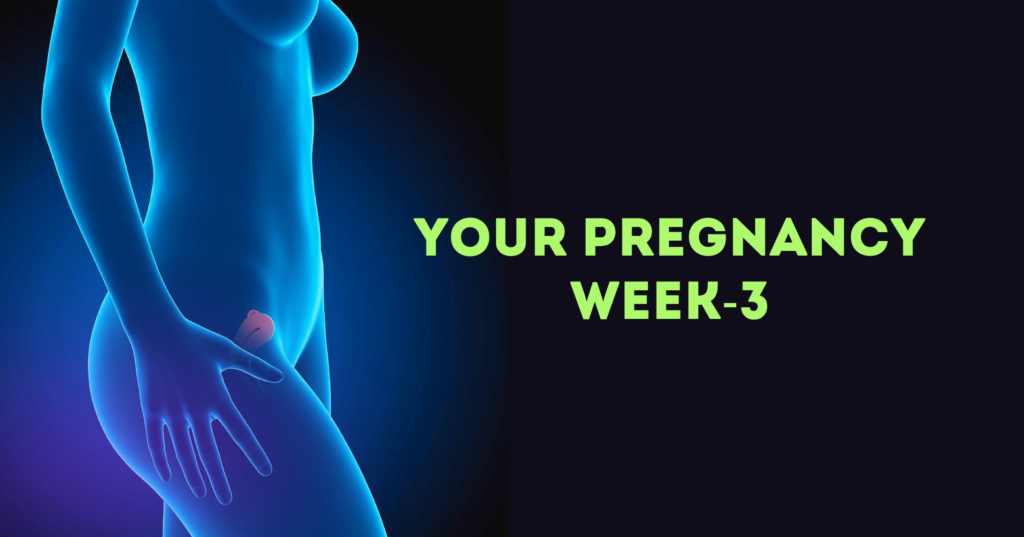At 7 weeks pregnant, you’re likely noticing more changes in your body and may be feeling some of the stronger symptoms of early pregnancy. Your baby is growing quickly, and critical developments are happening every day. Here’s everything you need to know about this stage of your pregnancy.
Key Takeaways at 7 Weeks Pregnant
- Your baby is now about the size of a blueberry and is developing rapidly.
- You might experience more pronounced pregnancy symptoms, like nausea, fatigue, and food aversions.
- It’s the perfect time to schedule your first prenatal appointment if you haven’t done so.
- Hormonal changes are causing physical and emotional shifts that might intensify this week.
Pregnancy Symptoms During Week 7 and How to Manage Them
At 7 weeks, your body is adjusting to accommodate your growing baby, which can lead to several common symptoms:
- Morning Sickness: Nausea can be intense during week 7. Eating small, frequent meals and avoiding strong smells can help reduce discomfort.
- Extreme Fatigue: Your body is working overtime to support your baby’s growth. Make sure to get plenty of rest and don’t hesitate to take naps when you can.
- Breast Tenderness: Your breasts may feel sore, swollen, or sensitive as they prepare for milk production.
- Frequent Urination: This symptom continues due to the increased blood flow to your kidneys.
- Food Cravings or Aversions: You might crave certain foods or develop a strong aversion to others, which is all due to hormonal changes.
How to Manage These Symptoms:
- Stay Hydrated: Drinking plenty of water can help with nausea and keep your energy levels up.
- Eat Balanced Meals: Focus on foods that are easy on your stomach, like bananas, rice, applesauce, and toast (the BRAT diet).
- Exercise: Light activities like walking or prenatal yoga can help reduce fatigue and boost your mood.
- Get Plenty of Rest: Listen to your body and sleep as much as you need to recharge.
7 Weeks Pregnant Is How Many Months?
At 7 weeks pregnant, you are about 1.75 months into your pregnancy, which means you’re still in your second month. Although it’s early in the pregnancy, your baby is already going through significant changes.
Baby Development at 7 Weeks
Your baby is developing at a rapid pace during week 7, with some significant milestones:
- Size: Your baby is now about the size of a blueberry, measuring around 0.5 inches (1.25 cm) long.
- Brain and Nervous System: The brain is growing more complex, with the beginnings of neural pathways forming. Amazingly, your baby’s brain gains 250,000 cells per minute, on average, throughout the course of pregnancy.
- Eyes: The main parts of the eye that allow your baby to see – the cornea, iris, pupil, lens, and retina – start developing this week, and they’re almost fully formed just a few weeks later.
- Digestive system: Your baby’s stomach and esophagus start to form. The esophagus is the tube that moves food from your baby’s mouth to the stomach. Your baby’s liver and pancreas are also starting to develop this week.
- Limb Development: Tiny arms and legs are forming, with hands and feet starting to develop from the limb buds.
- Heart: The heart is fully formed with four chambers and is beating at about 90-110 beats per minute, which is almost twice the rate of your own heart.
- Facial Features: The mouth, nostrils, and eyes are becoming more distinct, although they still have a lot of developing to do.
Your Pregnant Belly at 7 Weeks
At 7 weeks, you might not have a noticeable baby bump yet, but you could be feeling the effects of early pregnancy bloating. As your uterus continues to expand, you may start to feel a little rounder around your midsection, though most people won’t notice it just yet.
Pregnancy Checklist at 7 Weeks Pregnant
Here’s a checklist to help you navigate week 7 of your pregnancy:
- Schedule Your First Prenatal Visit: If you haven’t done so already, book an appointment with your healthcare provider.
- Take Your Prenatal Vitamins: Continue taking prenatal vitamins that include folic acid, iron, and other essential nutrients.
- Eat a Nutrient-Rich Diet: Include foods that are high in calcium, protein, and omega-3 fatty acids to support your baby’s development.
- Stay Active: Light exercise can help manage stress and fatigue.
- Track Your Symptoms: Keeping a record of your symptoms will help you discuss any concerns with your doctor.
To-Do’s for DAD
Partners play a crucial role in supporting the pregnancy journey, even in these early weeks. Here are some things they can do:
- Educate Yourself: Learn about the symptoms your partner is experiencing and how you can support them.
- Help with Healthy Habits: Encourage a balanced diet and be a workout buddy for prenatal exercises.
- Emotional Support: Understand that mood swings and fatigue are common, so be patient and listen to your partner’s needs.
- Plan Ahead: Start preparing for the baby by researching baby essentials and organizing finances.
Frequently Asked Questions
1. Is cramping normal at 7 weeks pregnant? Yes, mild cramping is normal at 7 weeks and is usually due to your uterus stretching. However, if cramping is severe or accompanied by heavy bleeding, contact your healthcare provider.
2. Can you have an ultrasound at 7 weeks pregnant? Yes, an ultrasound at 7 weeks can show your baby’s heartbeat and give you a first glimpse of the developing embryo. This is often when the pregnancy is confirmed visually.
3. How should I deal with morning sickness at 7 weeks pregnant? To reduce morning sickness, try eating small, frequent meals, avoid spicy or greasy foods, and stay hydrated. Ginger tea and lemon water are also known to help soothe nausea.
4. When will I start showing a baby bump? Most women don’t start showing a noticeable baby bump until around the 12th week of pregnancy, but some may experience bloating and slight changes earlier on.
Conclusion
At 7 weeks pregnant, your baby is growing and developing rapidly, and your body is adjusting to support these changes. Focus on a balanced diet, plenty of rest, and staying informed about what to expect in the coming weeks. Partners should also be proactive and involved to ensure a positive and supportive environment for both mom and baby.
If you have any concerns about your symptoms or your baby’s development, don’t hesitate to contact your healthcare provider for advice and reassurance.



